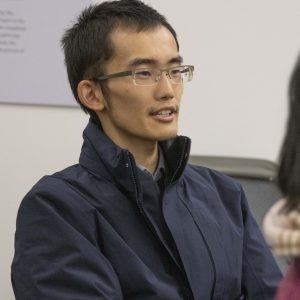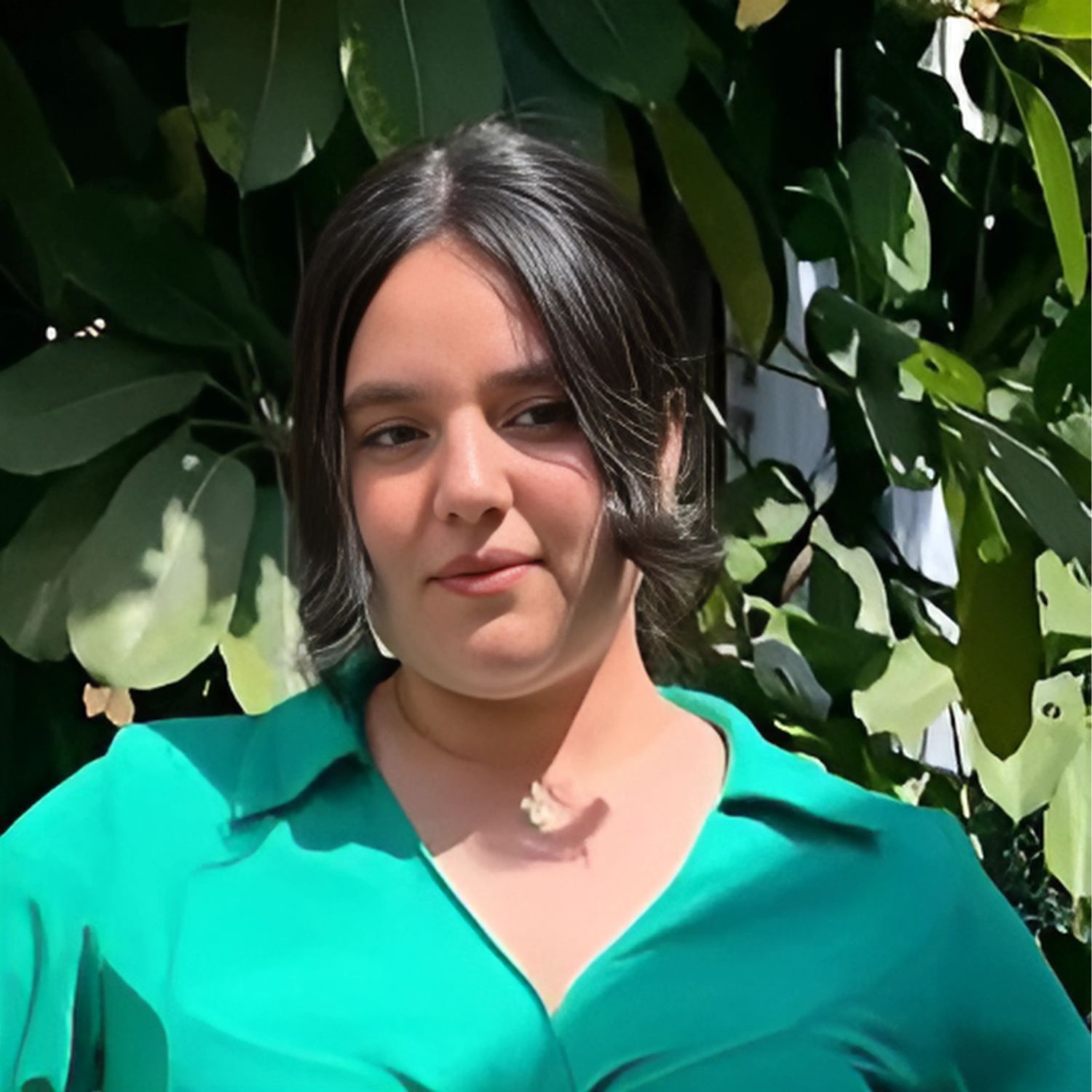
Hometown:
Shanghai
Education:
BS in Mechanical Engineering, UC Berkeley.
What was I doing before DRBU?
I was working for an engineering consulting firm in the Bay Area and quit my job hoping to spend more time studying and practicing Buddhism. I went back to China and tried to investigate the sutras and meditate on my own. It turned out to not be an easy process and I found myself in need of experienced teachers and a community for not only developing skillful methodologies but guidance on putting theories into practice. DRBU naturally became my next stop.
Influential class I’ve taken:
Comparative Hermeneutics. Through exploring major Western philosophies, we are not interested in them as mere ideologies but rather as mirrors to reflect our views. These reflections provide markers for us to recognize and let go of hidden assumptions that we have unconsciously applied when interpreting the Buddha’s teachings. This has served to guard my cultivation from turning into just another reinforcement of habitual attachments and enabled me to truly use practice as a cure for my afflictions.
Influential book I’ve read:
The Sixth Patriarch’s Dharma Jewel Platform Sutra. This teaching at the beginning of the book—“Bodhi is just the purity of your own nature. Attend only to this and you will straightaway achieve Buddhahood.”—has deeply connected me with the cultivation principles embodied in the sutra and at the same time connected me with my own inner compass. What this line fundamentally points out is that we lack nothing for awakening. The missing element is having trust in ourselves and our ability to recover this innate well-being. It all comes down to developing our inner sensibility for converting the conveyed principles into direct realization.
Concept that blew my mind:
The Sixth Patriarch’s Dharma Jewel Platform Sutra states: “Previous thoughts clinging to sensory states are afflictions; and succeeding thoughts unattached to states is bodhi.” Afflictions turn out to be self-inflicted due to our attachments. When you can’t get what you crave or can’t be apart from what you despise, the moment you let go of this craving or aversion, the suffering stops. It is almost too good to be true. But straightforward as it may be, I quickly found that when my mind is attached to states, deep down in my core I am identifying with these attachments. With this realization, the teachings come alive and become medicinal for me. It helps me trace in my mind the source that evokes clinging or aversion.
The Sixth Patriarch stated, “Persist daily in being generous and forgiving; donating money, however, cannot bring enlightenment.” This line directly points to the underlying greed that can even take the form of donation, the greed to “get” enlightenment. It is by recognizing this kind of subtle inclination that I learn to be aware of my utterly pure nature as hindered by attachments. In the case of practicing generosity, if afflictions do arise, I do not look for external causes but simply check my intention: do I just give or give in order to gain?
Challenge(s) I faced:
The courses at DRBU are designed to challenge our presumptions rather than impose concrete answers. When I first started, I found that my previous prejudices, or any rigidity about how things should be, are constantly exposed to differing perspectives from philosophical texts, professors’ probing questions, and the diverse views of my classmates. This process forces me to reevaluate my old narratives while staying open minded and patient. It was a painful struggle but undoubtedly a fruitful one. I think of it as similar to getting up in the morning—the torpor and apparent coziness lose their grip on me the moment my mind turns fully active for the new day.
How has DRBU changed me?
It has made me more humble, respectful, and attentive to others, and more importantly, it has inspired me to perfect these qualities even though my habitual energies constantly pull me back. Now I not only understand, but truly feel this path as ultimately liberating, for it is about letting go of my ego, the very source of self righteousness which causes conflicts with others. Take a typical class at DRBU as an example. As I am engaged in a shared inquiry discussion with my professors and other students, whenever I get arrogant about my “superior” understandings or competitive against others’ acumen, I immediately pollute the open space that is held by everyone, not only by creating tensions but by killing off the spontaneity of mind that is essential for deeper insights.
What surprised me about DRBU?
I am constantly impressed by the full-hearted dedication of this community which is constantly supporting and stimulating students’ inquiry about what it truly means to know and live. We students do not just acquire knowledge but rather live to philosophize through dialectics, self reflection, doubting, questioning, group sharing, meditation, chanting, mindfulness of body, practicing loving-kindness, community service, etc. This unending list is not only made possible by the structure of the university, but most importantly, is fostered by each member’s own continual learning and cultivation.
Do you have a daily practice— if so, what is it?
I recite mantras and practice sitting meditation.
What do you do for fun?
I enjoy attending ceremonies at the Buddha Hall. When everyone including the monastic community sincerely cultivate, whether it is bowing or recitation, that energy carries me to gather in my awareness and let go of whatever afflictions that have been occupying my mind.
How does what you’re learning here carry out into the world?
Though I am not sure, my experiences so far have made me strongly aware that all positive changes have to be initiated from myself. If I am concerned about others’ sufferings, I have to work on letting go of my own craving and aversion, and part ways with my afflictions first. Most importantly, anytime I see faults in others and feel like interfering, I need to reflect on how I myself can change for the better.


